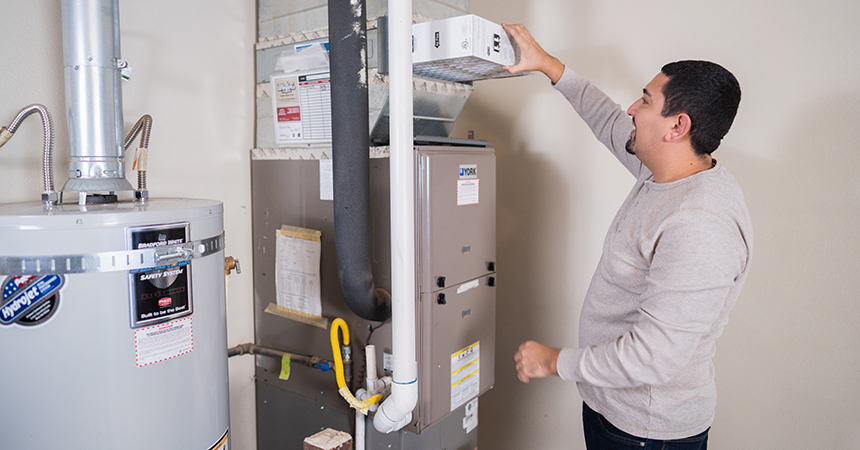
With a long list of new federal tax credits available through the Inflation Reduction Act (IRA) passed in 2022, it can be hard to know where to start. Since tax credits are available through 2032, there’s time to plan your home improvements to maximize your energy and financial savings. This is the third in a series of blog posts on projects that could qualify for IRA benefits.
Once you have weatherized your home and conducted a professional home energy audit, you may be considering changes to what is likely your home’s biggest energy user: heating and cooling systems.
According to ENERGY STAR®, as much as half of the energy used in your home goes toward heating and cooling, which is why choosing the right system is key to saving energy and money.
Because heating and cooling systems have a 10- to 20-year lifespan, it’s important to weigh both long-term savings and upfront costs. While some energy-efficient systems may cost more initially, they can help you save more over time. Fortunately, new federal tax credits can be combined with incentives from Energy Trust to help you save from the start.
Here is a list of energy-efficient heating and cooling options and resources to help you pay for the equipment upgrades.
High-efficiency gas furnace
Federal tax credit: Claim 30% of project cost up to $600. Learn more here.
Energy Trust incentive: Up to $1,600 for qualifying customers. Learn more here.
In the Northwest, furnaces are the most common choice for heating. Furnaces work by blowing heated air through ducts and delivering it to different areas of your home. Some furnaces are more efficient than others. Getting a furnace with an annual fuel utilization efficiency rating (AFUE) of 95% or higher will ensure that 95% of the energy the furnace uses is converted to heat.
Furnaces can be paired with air conditioning systems or a heat pump (see below), making them flexible options that can make your home comfortable throughout the year.
Ducted heat pump
Federal tax credit: Claim 30% of project cost up to $2,000. Learn more here.
Energy Trust incentive: Up to $3,000 for qualifying customers. Learn more here.
For homes with air ducts, ducted heat pumps are an energy-efficient choice to both heat and cool your home.
Electric heat pumps include an indoor and outdoor unit that use refrigerant coils to efficiently capture heat energy from the surrounding air. In heating mode, they harvest heat from the outdoors, transferring it indoors to evenly warm your home. In cooling mode, this process reverses, working as an air conditioner by taking heat from indoor air and pushing it outside.
Ductless heat pump (also known as a mini-split)
Federal tax credits: Claim 30% of project cost up to $2,000. Learn more here.
Energy Trust incentives: Up to $1,800 for qualifying customers. Learn more here.
Ductless heat pumps work best in homes or spaces without ductwork. Like a ducted heat pump, they also efficiently take heat from outdoors to indoors and vice versa. An indoor unit is wall-mounted, establishing a connection with the outdoor unit through a refrigerant line.Ductless heat pump systems are a practical choice for:
- Homes using alternative heating methods like radiators or baseboard heat
- Additions to homes where extending ductwork is not practical
- Spaces neighboring unconditioned areas, including guest rooms situated above garages or accessory dwelling units (ADUs)
If your home has a less efficient heating system like baseboard heat or wall heaters, you may qualify for additional Energy Trust incentives to replace your system with a heat pump. Learn more here.
When you are ready to install a new heating system, find an Energy Trust trade ally contractor who can answer questions about which solution is right for your home and help you apply for incentives.
If you have any questions, contact Energy Trust at 1.866.311.1822.
Note: Requirements for federal tax credits and Energy Trust incentives may differ. Energy Trust does not give tax advice. Consult your tax professional for current information on credits available and how to apply.
